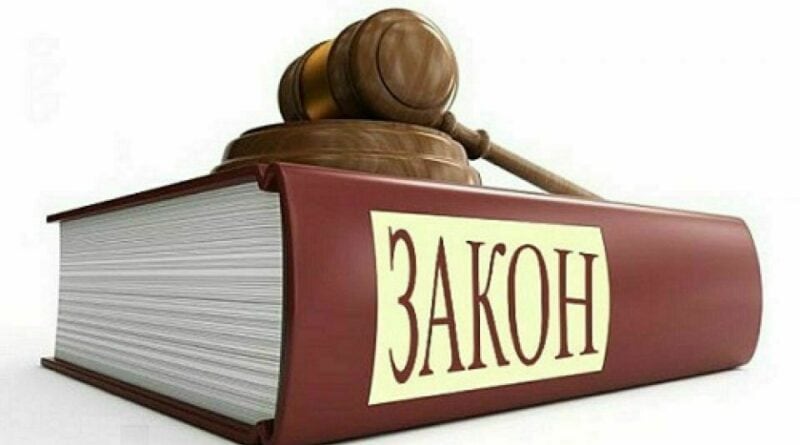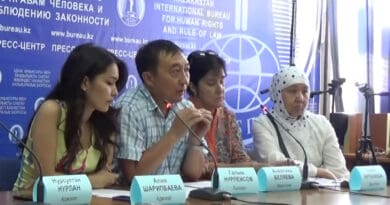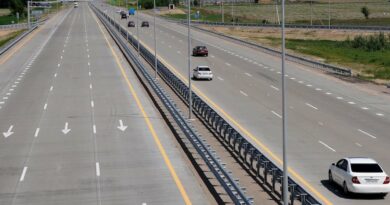International Commission of Jurists demands to stop bullying lawyers in Tajikistan
The International Commission of Jurists (ICJ) has expressed concern about acts of intimidation from the state Anti-Corruption Agency against the Chairman of the Union of lawyers of the Republic of Tajikistan Saidbek Nuriddinov and another 15 lawyers.
Apparently, the pressure is due to the fact that the lawyers defend Abdulaziz Abdurahmonzoda. The case of the lawyer accused of fraud is being considered by the court, and there is evidence that during his detention he was cruel-treated by employees of the Agency for Financial Control and Anti-Corruption of the Republic of Tajikistan (Anti-Corruption Agency).
After the lawyers defending Abdurahmonzoda claimed that they had been cruel-treated, the judge Ahmadzoda Farogat from Sino district’s court in Dushanbe, who is considering the case, asked the Prosecutor General to investigate the complaints.
After initiating a verification of ill-treatment’s statements, the Head of the Anti-Corruption Department in Dushanbe allegedly sent inquiries to a number of district courts in Dushanbe to receive information on civil and criminal cases in which Saidbek Nuriddinov participated as a lawyer. It is reported that data such as customer names and addresses have been requested; subject of civil cases and information about the charges against the client. In addition, the ICJ became aware that the judge Ahmadzoda Farogat, at the request of the Anti-Corruption Department, handed over to them the list with the names of fifteen lawyers, as well as copies of their warrants to represent the interests of the defendant.
The ICJ notes that although this information is not confidential, previously similar checks undertaken by the Anti-Corruption Office have already led to the criminal prosecution and conviction of lawyers.
“In this case, the lawyer brought to trial was supported by his colleagues, including the Head of the Union of lawyers, which corresponds to the professional ethics of the lawyer,” said Timur Shakirov, senior legal adviser to the ICJ. “Their participation as defenders in the case is in accordance with international standards regarding the role of lawyers, as well as with Tajikistan’s national law.”
“If the investigation involves the participation of lawyers in the case of Abdurahmonzoda, then it can be considered as a means of intimidation of lawyers. In this case, it should be terminated, and lawyers should be given the opportunity to act freely and in good faith, in accordance with national law and international law and standards regarding the role of lawyers,” Shakirov added.
Recall, on April 17, 2019, a criminal case was opened against the lawyer Abdulaziz Abdurahmonzoda under the Article 247 part 2 of the Criminal Code (Fraud). During the trial, which was attended by an observer from the ICJ, Abdurahmonzoda insisted on his innocence and complained of violations of the criminal procedural law during the preliminary investigation: criminal proceedings were instituted in the absence of legal grounds (it is reported that the case file does not contain the victim’s statements of fraudulent acts committed by Abdurahmonzoda); violation of the course of the preliminary investigation and the provision of evidence obtained by knowingly illegal means. The ICJ continues to monitor the trial process of this case.
In accordance with the UN Basic principles on the role of lawyers, governments must ensure that lawyers “are able to fulfill all their professional duties in an environment free from threats, obstacles, intimidation or undue interference” and “are not subject to prosecution and judicial, administrative, economic or other sanctions for any actions committed in accordance with recognized professional duties, norms and ethics, as well as threats of such harassment and sanctions” (Principle №16).
In addition, the interference or obstruction of the activities of a lawyer is prohibited by the Law of Tajikistan “On lawyers and advocacy activities”. According to the Law, a lawyer cannot be held liable for any opinion expressed by him (her) in the framework of advocacy, except for actions that may constitute a crime. It is not allowed to request information from lawyers or Unions of lawyers related to the provision of legal assistance in specific cases.
The draft Universal Declaration of Independence of Justice (the “Singhvi Declaration”), which gives the bar association the power to defend the bar independence, stipulates that the bar is “promptly notified of the reasons and legal grounds for the detention or imprisonment of any member of the bar or any lawyer practicing within its jurisdiction”. In this case, the bar associations “have the right, in the person of their chairman or other representative, to monitor the progress of the proceedings and, in particular, to ensure the observance of professional secrecy and the independence of profession”.




